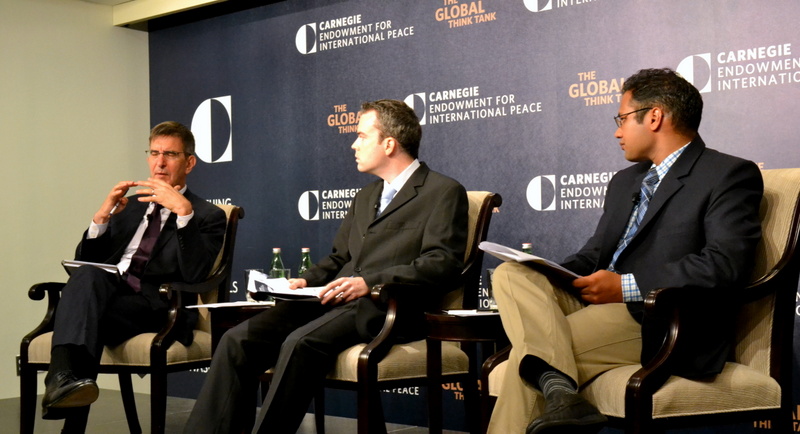Registration
You will receive an email confirming your registration.
India stands at a new juncture in its nuclear development. New Delhi is unveiling ballistic missiles of ever-greater range, while its nuclear-armed submarine fleet is finally taking operational form with the launch of the Arihant. Despite these developments, India’s nuclear doctrine has not been officially updated since 2003. What is the future direction of India’s doctrine? Will India continue to adhere to a force posture informed by credible minimum deterrence? What are the potential implications for India’s relationships with the United States, Pakistan, China, and the global nonproliferation regime?
Frank O’Donnell and Yogesh Joshi discussed current Indian perspectives on these questions and more. Carnegie’s George Perkovich moderated.
Frank O’Donnell
Frank O’Donnell is a Ph.D. candidate in defense studies at King’s College London.
Yogesh Joshi
Yogesh Joshi is a Ph.D. candidate in the Center for International Politics, Organization and Disarmament at Jawaharlal Nehru University.
George Perkovich
George Perkovich is vice president for studies at the Carnegie Endowment for International Peace.
